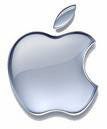David Coursey David Coursey – Sat Feb 6, 4:48 pm ET
The more people know about the iPad, the less they want to buy one, according to a study released Friday. But, are we expecting too much?
The study seems to confirm the iPad as Apple's least exciting announcement in years. And the company is feeling the backlash that comes from not delivering on the hype.
Retrevo, an online marketplace for consumer electronics, surveyed 1,000 of its customers and found that the iPad's Jan. 27 announcement did more to snuff out customer interest than to spark it.
That's not surprising when all Apple introduced was just a supersized (and superexpensive at the high end) iPod touch. My friend and fellow pundit Larry Magid described as the iPad as "underwhelming."
I agree, the iPad is underwhelming, especially as a business device. And the more people heard about the iPad, the less they wanted one, according to Retrevo.
"The word definitely got out as the number of respondents saying they had heard about the tablet rose from 37% shortly before the announcement to over 80% after the media frenzy on January 27th," Retrevo said Friday in a blog post.
"Unfortunately for Apple, the number if respondents saying they had heard about the tablet but were not interested in buying one, doubled from 25% before the announcement to over 50% following the announcement."
Of course, that 50 percent who are interested is plenty to make the product a success, provided many of them actually become buyers. (Learn more about the study in this story by Greg Keizer).
I think we may be being a bit hard on the iPad. I still don't think it will become a big enterprise computing tool, even if it does "run" Windows 7 (as a virtualized desktop). I also don't think traditional mobile line-of-business applications--think your UPS driver--will start carrying iPads.
But, entertainment, gaming, and e-reading, especially in education, could still make the iPad quite a winner.
Apple already has the ecosystem in place--developers, content, shopping--to make the platform immediately useful when it arrives.
The iPad appears to be an excellent e-reader, though I said that about the Nook before it shipped, too. In this case, however, enough pre-production iPads have been around that I feel pretty confident.
I still don't feel the need for an iPad, but I do expect to invest in an e-reader soon and am glad I didn't get a Nook for Christmas.
Now, I want to wait a bit and see how the devices, content pricing, and content availability shake-out. At some future moment, the combination of e-reader features/content and interesting apps (not available on my iPhone) could convince me.
So, while I don't see an iPad in my immediate future, I am closer to buying one--or perhaps a competitor--than I was before the announcement. I still wouldn't say I want an iPad. But, I see how I might be convinced in the future.
David Coursey has been writing about technology products and companies for more than 25 years. He tweets as @techinciter and may be contacted via his Web site.
Source:
news.yahoo.com



